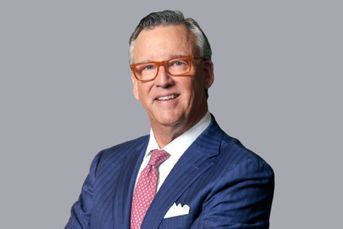401(k) lawsuit over ESG is a sign of the times

A plaintiff alleges that ESG led to lower returns, but the case brought against American Airlines' defined-contribution plan might be more political than substantive.
The first lawsuit over ESG in a 401(k) has officially been filed.
In the highly litigious realm of employer-sponsored retirement plans, where copycats have been riding lawyer Jerry Schlichter’s coattails to settlements and big paydays for the better part of a decade, it was all but expected.
Nor was it surprising that the plaintiff law firm in this case set its sights on a big target — American Airlines, which as of 2021 sponsored a nearly $27 billion 401(k) plan.
And of course, it isn’t a shock that the case alleges that the 401(k) plan participants suffered because of ESG. In the current environment, ESG has been politically vilified to critical-race-theory levels — that is, a boogeyman has been established to scare, and rile, the voter base. Something as seemingly innocuous as using climate-risk data to help inform investment decision-making has been called no less than a threat to democracy.
If you’d asked me a few years ago, I would have said that plan sponsors might well be sued because they didn’t consider ESG factors and therefore neglected an aspect of their fiduciary duty. But a lot can change in a short amount of time. And I suspect that more people than ever have opinions about ESG, though it’s safe to say that very few are well-informed about how asset managers — sustainable or otherwise — use ESG data.
INSTITUTIONAL INVESTORS
In the world of retirement saving, it’s hardly a new consideration, at least on the institutional side. Pension plans, which generally have a high level of investment acumen behind them, have been taking ESG considerations into account for many years.
On the 401(k) side, ESG remains all but nonexistent, thanks in part to waffling stances across administrations at the Department of Labor. This year, a new rule went into effect that allows — but does not require — plan fiduciaries to consider ESG factors.
Nonetheless, change happens at a glacial pace in the defined-contribution business, as plan fiduciaries are notoriously risk-averse.
Litigation has played a big part in that, and employers — aware that they’re potential targets — are ever vigilant about slight missteps that could cost them in court. As lawsuits over the past few years show, fiduciaries have been targeted for having funds that are either not the lowest cost available or not the strongest performing ones on the market.
The trend hasn’t been all bad, as the wall of class-action lawsuits over the past decade has encouraged plan sponsors to opt for low-cost share classes or investment vehicles, which has benefited plan participants.
STIFLING OTHER CHANGES
Conversely, the threat of litigation has likely discouraged plan sponsors from considering things like sustainable investment options, which is a disservice to employees who are saving for retirement.
That’s because environmental, social and governance data add to the information that asset managers have to assess risk and opportunity. While sustainable funds lagged their standard peers last year in net returns, that trend appears to be reversing, driven by ESG-themed funds’ higher exposure to tech stocks, which are performing well, and lower exposure to energy holdings, which are not doing as well.
And surely, climate change and human rights are broad issues that plan participants should at least have the option of considering, regardless of financial performance.
But the lower returns on average that sustainable funds saw in 2022 provided critics of ESG with ammunition.
However, an assertion that ESG is bad for investment returns is too simplistic. There are times when sustainable funds outperform and other times when they underperform. And there are many funds that use ESG data strategically but are not sustainable products.
THE CASE
The lawsuit, which names American Airlines, Fidelity Investments Institutional, the plan administrator, and Financial Engines, an investment advice provider, as defendants, alleges that dozens of funds available to plan participants “pursue nonfinancial and nonpecuniary ESG policy agendas” and “have underperformed compared to other similar investment funds.”
However, unlike many 401(k) lawsuits that focus on investment returns, this one doesn’t say anything about the performance of the individual funds. Nor does it specify whether the full roster of funds was included in the plan menu or was merely available through a mutual fund window.
“It’s such a broad, superficial type of argument,” said Bonnie Treichel, chief solutions officer at Endeavor Retirement, adding that she “wouldn’t give it a strong chance of proceeding.”
The defendants will likely argue that plaintiffs have failed to plausibly allege a breach of fiduciary duty, with the general claims about ESG-related performance not amounting to much, she said. “These are probably just legal conclusions couched as factual allegations that the court will likely dismiss,” Treichel said in a separate email.
But it’s also worth noting that the plaintiff firms in this case — Sharp Law and Hacker Stephens — appear to be new to the arena of Employee Retirement Income Security Act litigation.
The fiduciary obligations differ substantially for investments on the core menu versus those in a fund window, with the latter requiring monitoring of the brokerage provider rather than each individual investment, Treichel said.
Although the DOL rule regarding ESG in retirement plans is now in effect, that likely won’t play a role in the case, as the class period goes back to 2017, she noted.
The politicization of ESG probably has a lot to do with why such a case was filed this year.
But if ESG data are material to risk and return — which proponents have long argued they are— a case could be made for fiduciaries to at least consider them.
“If there really is something of a financial impact, shouldn’t you be evaluating that?” Treichel said. “That’s the real question.”
How do the world’s top athletes make winning decisions? Sportswriter Sally Jenkins explains
Learn more about reprints and licensing for this article.








